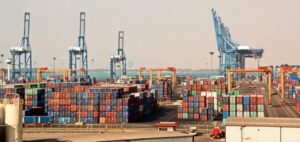Saudi Arabia’s newly updated investment law and a series of recent reforms are expected to significantly advance the Kingdom’s goal of securing $24 billion in foreign direct investment (FDI) in 2024, according to a recent analysis by Standard Chartered.
The report highlights that Saudi Arabia’s economic future will be bolstered by increased FDI inflows alongside investments in public capital projects and the private sector. This aligns with the Kingdom’s broader economic diversification strategy, which targets $100 billion in FDI by the end of the decade.
The updated investment law, approved earlier this month, aims to enhance transparency and simplify the investment process. It includes strengthened protections for investors, such as adherence to legal standards, fair treatment, property rights, and robust intellectual property safeguards, alongside facilitating smoother fund transfers.
Standard Chartered expressed confidence that the $24 billion FDI target for 2024 is attainable, though it noted that this figure remains modest compared to the $100 billion goal for 2030. The report attributes ongoing FDI support to a range of reforms initiated since the 2014 oil price downturn, including the latest investment law, which broadens the legal framework to benefit both domestic and international investors.
Despite media speculation about potential reductions in high-profile projects, Standard Chartered emphasized that Saudi Arabia’s strategic adjustments in investment decisions suggest enhanced fiscal flexibility. The investment climate in the Kingdom is expected to remain robust in the coming years, driven by high capital expenditure, which is set at its highest level in six years at $50.4 billion, with over half already realized in the first half of the year.
Assistant Minister of Investment Ibrahim Al-Mubarak, in a CNBC interview, underscored the Kingdom’s commitment to attracting more FDI from European and Asian countries as part of its ongoing economic diversification efforts. He highlighted the financial sector’s “huge opportunities” due to its strong debt capital market and favorable debt-to-GDP ratio.




